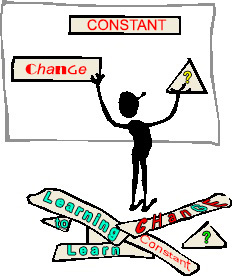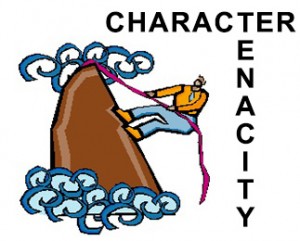Exactly one year ago today I initiated the weekly Marlowsphere blog. In that time I have written 53 blogs dealing with music, media and culture. Every week I attempt to write about a subject that will be of interest to others. Often the subject chosen is in response to a current event.
This week I write about education, or more to the point, the choice a student makes of a major for a bachelor’s degree and its relationship to one’s early career. As some readers of this blog know, I teach courses in media and culture at Baruch College (City University of New York). This current academic year marks my 25th year of teaching in the Journalism Department. My colleagues have varied and deep backgrounds in their area of expertise. Some have graduate degrees in journalism, others do not, like myself. Which brings me to the point of this blog: what an undergrad majors in is less important than the process of how to learn and the continuation of learning after completing one’s college career.
In order to graduate from college with a bachelor’s degree, a student must ultimately make a decision somewhere around the second half of the sophomore year: what should I major in? For some undergraduate students choosing a major can be an agonizing process. Other students may have a clear vision of the future and know exactly what they want. Still other  students choose to study a subject that down the road will afford them a good living or boost them into a successful career. Another portion of the student population will choose a major because their parents have pushed them into it, such as accounting, engineering or science.
students choose to study a subject that down the road will afford them a good living or boost them into a successful career. Another portion of the student population will choose a major because their parents have pushed them into it, such as accounting, engineering or science.
Certainly, if a student has an eye on graduate school—such as medical school, dental school, physics or chemistry, engineering, or law—then the choice of major leading to the graduate school application is a necessary early choice. But for many students the choice of a major is, frankly, an arbitrary one. I have taught at three separate four-year colleges—the aforementioned Baruch College (undergraduate and graduate), Fordham University (graduate), and New York University—and one community college—Merced Community College, in central California. What I have observed and the conclusion I have come to is that there is not necessarily a direct line between one’s undergraduate major and one’s ultimate career. These days you might actually have several careers.
Fact is, over the course of a couple of generations the undergraduate degree has become the new high school degree, and the master’s degree is the new bachelor’s degree. Today, you dare not just graduate from high school. You must attempt an undergraduate college degree, otherwise you risk earning about a million dollars less in your lifetime than your college graduate counterparts. When you graduate you find a job to help pay your living expenses (or you move back with your parents, presuming you moved out of your parents’ home while in college) and to help pay off college tuition loans (presuming you didn’t get much in the way of scholarship funds), after perhaps six-twelve months you get a promotion or you move to another company to get a better paying job, and so on. Over the course of a lifetime you may have moved from position to position many times. It’s also conceivable that you’ve changed careers several times, sometimes within the larger discipline, or from one discipline to one that is completely different!
In this lifetime career context, therefore, and excluding the career choices mentioned above—the choice of a major at the undergraduate level becomes almost irrelevant.
What, then, is the purpose of an undergraduate degree? This is my perspective: the undergraduate degree is a two-year or four-year experience to help students learn how to learn. It is not necessarily about course content, it is about the process of knowing where to find information, abstracting it, analyzing it,  summarizing conclusions, and communicating it effectively and efficiently orally and in writing to a variety of audiences. This process applies to virtually every discipline or major. To have learned how to learn will keep you in good stead as you head out into the world where change is the constant. Learning how to learn means possessing the skills to keep up with changes in your chosen career as well as technological advances.
summarizing conclusions, and communicating it effectively and efficiently orally and in writing to a variety of audiences. This process applies to virtually every discipline or major. To have learned how to learn will keep you in good stead as you head out into the world where change is the constant. Learning how to learn means possessing the skills to keep up with changes in your chosen career as well as technological advances.
An undergraduate degree is also about character. As I have mentioned in previous blogs, the undergraduate college degree is also about evolving one’s character by dealing with and facing up to the challenges presented in the college environment. It is a time of intellectual and emotional exploration and growth. (See The Marlowshphere Blogs #15, #16 and #17)
It has been my life experience and observations that even though one might change careers several times, or study different disciplines at different times, it is highly probable that whatever choices one makes they are more than likely within a general sphere to begin with. Everything about a person is autobiographical—you cannot be who you are not. If you don’t have athletic abilities, you’re probably not going to be a professional athlete. If you’re not good with numbers, you’re probably not going to be an accountant. If you’re tone deaf, a musical career is probably not in your future. The issue is exploring what you do have and applying it successfully for the purpose of economic survival.
One last point. There are plenty of examples of successful people who never completed an undergraduate college degree—Cher, Madonna, Whoopie Goldberg, Donna Karan, Paula Deen, Winston Churchill, Sean Combs, Bill Gates & Paul Allen, Steve Jobs, and Brad Pitt. And there are plenty of examples of people who  never trained in a discipline but nonetheless succeeded in their career choices—such as musicians and composers Steve Allen, all of the Beatles, jazz piano virtuoso Errol Garner, Broadway show composer Jerry Herman, and Ray Charles.
never trained in a discipline but nonetheless succeeded in their career choices—such as musicians and composers Steve Allen, all of the Beatles, jazz piano virtuoso Errol Garner, Broadway show composer Jerry Herman, and Ray Charles.
These people are exceptions, certainly. But their success, despite numerous presumed challenges, is testimony to their character attribute of “tenacity.” Too many academics perceive that the undergraduate college degree is the end all, be all. They are overly concerned with content. Their mindset is the necessity for an orderly acquisition of content as a path to learning. Yes, you cannot run before you learn to walk pedagogically speaking, but the obtainment of a piece of paper attesting to a student’s successful completion of 40 or so courses, with 30 of those credits in a “major” does not guarantee professional or even personal life success.
Learning how to learn and developing a strong sense of self is more of a guarantor of a healthy, successful life where change is a formidable constant.
Please write to me at meiienterprises@aol.com if you have any comments on this or any other of my blogs.
Eugene Marlow, Ph.D.
March 18, 2013
© Eugene Marlow 2013


